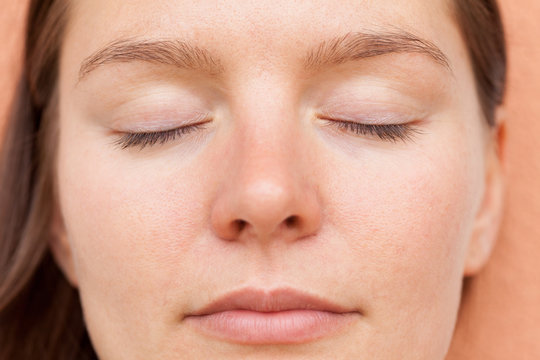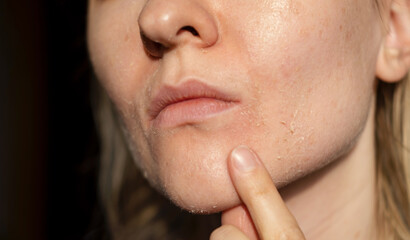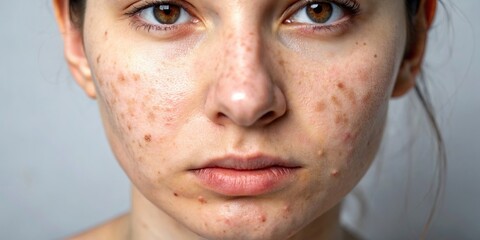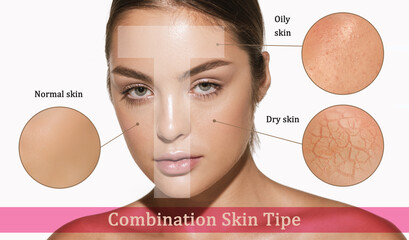What Is My Skin Type?
We should all take responsibility for caring for our skin, for example, staying out of direct UV rays, not going for too long in the sun unprotected, using chemical free skin care products that nourish and moisturise our skin, etc.
However, you will still need a customised skincare routine to take better care of your unique skin.
The reason for this is because we all have different skin types.
What Is My Skin Type? Unique Characteristics of Each Type
There are five basic types of skin: Normal, dry, oily, combination and sensitive skin.
Each skin type has a different skin care needs, and understanding your skin type is the first step in properly caring for it.
Regardless of the skin type, all skin types will benefit from daily Cleansing and Moisturising.
Our skin type is determined by genetics; and genetics are the reason why some may be prone to certain skin conditions such as dermatitis, psoriasis, sensitive skin while others are not.
Keep reading to know more about your skin type!
Normal skin
Normal is the term used to refer to well-balanced skin with no blesmish, no tightness, not prone to flakiness, breakouts or sensitivity. Individuals with normal skin have very fine pores on their faces and good blood circulation and have no specific skin issues or concern.
A gentle regular skincare routine with Maleka Naturals water soluble Cleansers and Face Moiturisers that contain antioxidants can help keep normal skin balanced, firm and fresh looking.

Dry skin
Dry skin is a skin type that produces less sebum than normal. This results in lack of lipids on the surface of the skin that is needed to retain moisture and protect the skin against external influences such as weather, UV rays, Cigarrette smoke and other pollutants.
Not protecting your skin against these external factors can exercebate your skin dryness or even be a continuing cause of it. On the face dryness is usually apparent on the cheeks/jawls and around the eyes, while in winter lips can become dry and chapped looking.
Products to use: For naturally dry skin, oil based products such as Maleka Naturals Shea Body Butter will help with moisturising, while thirsty, dehydrated skin will benefit from water based products containing humectants such as Maleka Naturals Face & Body Cream.
Discover Maleka Naturals Cleansers for dry skin

Oily skin
Oily skin is the opposite of dry skin in that it suffers from too much sebum production. This is known as seborrhoea. Oily skin can be triggered by a change in hormone like in pregnancy, or through the use of medication and stress. An indication of oily skin is skin that appears shiny and has enlarged, clearly visible pores.
This type of skin is also prone to pimples ( blackheads and whiteheads) and to mild or severe acne.
Products to use: Water based moisturisers such as Maleka Naturals Frankincense Face cream and other gel based or liquid products are best for oily skin types, as this ensures no additional oil is layered on the problemed area.

Combination skin
Combination skin is a skin type that experiences dryness and oiliness in different areas. Often it is characterised by an oily T-zone ( fore head, chin and nose) with dry or normal skin around the cheek and jowl area. Although this is the most common skin type, it can be difficult to create skin care products that are suited for this skin type.
Products to use: Light weight hydrating products such as Maleka Naturals Face Moisturisers with mild gentle Maleka Naturals Cleansers and toners are the best solution to help maintain a natural balance.

Sensitive skin
Sensitive skin could also be referred to as a skin type, but it’s possible to have dry sensitive skin, oily sensitive skin, or normal sensitive skin. Regardless of the skin type , if you have a sensitive skin, it may appear red and have a burning, itching, or dry feeling.
These symptoms may be related to having skin that is more vulnerable to external irritants and may be triggered by certain ingredients like fragrances or dyes, as well as environmental factors.
If you have sensitive skin, it will be better to determine what triggers your skin sensitivity so as to avoid it.
You can also alter your environment to reduce your exposure to certain triggering agents.
Products to use: Light weight scent free Maleka Naturals Face Moisturiser and scent free Cleanser are probably the best solution for sensitive skin.

In conclusion; we have five basic skin types. Combination skin is the most common skin type.
Genetics determine our skin type, but factors such as UV rays, environmental pollutants, genetic diseases generally affects the overall health of the skin.
Dr Susan Adamu is a qualified vet. with MSc in Biomedical Sciences. She is a passionate natural skincare formulator and entrepreneur, and the owner of Maleka Naturals, a 100% natural skincare & haircare brand based in the UK. Shop here.